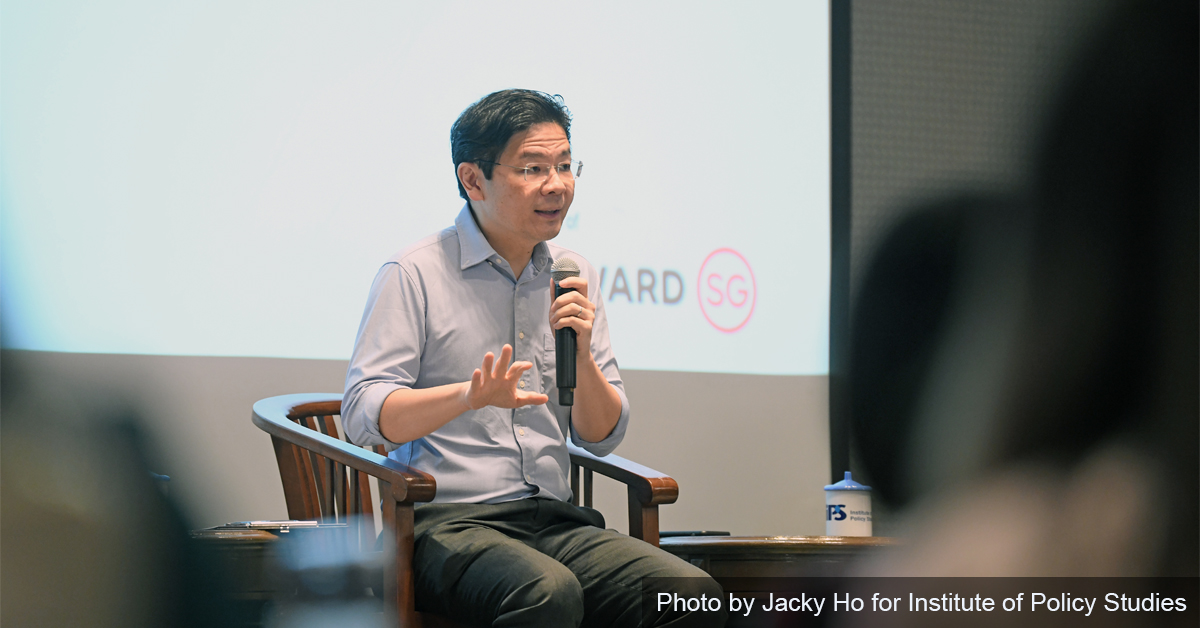
The People’s Action Party (PAP) 37th Central Executive Committee (CEC), members of which were elected by party cadre on Nov 6, announced on Saturday that it created a new post - deputy secretary-general - for its two-year term. What is its significance?
Mr Lawrence Wong will be the deputy secretary-general and exercise the powers of the secretary-general, Mr Lee Hsien Loong, when the latter is absent.
Mr Wong was designated in April this year as the person who is set to succeed Mr Lee in Government, and now, the party.
Previously, the party was content to indicate who the next secretary-general would be by making him first assistant secretary-general. As a thought exercise, would it have sufficed to place Mr Wong in that position just like his predecessors?
PICKING THE RIGHT TIME FOR THE LEADERSHIP HANDOVER
This move recognises that the PAP as well as Singapore is in an unprecedented situation in another way - that the timeline for the handover from Mr Lee to his successor was set back when the first pick made in 2018, Mr Heng Swee Keat, decided to cede way in April 2021 to a younger person who would have a longer term in office.
On one hand, there is expectation that the leadership succession might take place soon since it seems to have been delayed. On the other hand, prudence dictates that the handover should not be set based on a previous timeline but consider three new factors.
First, how Singapore needs to be guided through the shifting sands in the global geopolitical, economic and financial systems.
Second, how businesses and the community are led carefully in adjusting to reforms of its fiscal system – the announced rise in the Goods and Services Tax — deemed necessary to maintain the country’s long-term fiscal sustainability.
Third, how Mr Wong and his fourth-generation peers choose to reshape the social compact between Government and people through the Forward Singapore consultation process due to end only in mid-2023.
The real difference in creating this new half-step to the top job is that even if the handover in the party and in Government is not imminent, the PAP leaders are reinforcing the notion to the public that it is certain.
PRIORITISING QUALITY ENGAGEMENT IN THE NEW MOVES
Another noteworthy development is Mr Heng being made chairman. A leader who has stood out for his ease with deliberative public engagement, his presence signals he still has much to lend to the standing of the party and provides further assurance of PAP’s commitment to connecting well with the ground.
This is reinforced by the appointment of another leader of the same mould, Mr Desmond Lee, among the youngest in the CEC, to the post of assistant secretary-general, alongside Mr Chan Chun Sing.
Mr Lee was trusted with conducting the in-depth analysis of the party’s performance in GE2020 and presumably, to reform it based on the findings.
Notably, Mr Chan was appointed second assistant secretary-general in the 36th CEC, but there was no mention of a distinction between a first or second assistant secretary-general in the new line-up.
Finally, what was significant about the co-optations? Keeping Mr Ng Chee Meng in the CEC provides him continued political clout for the symbiotic ties the party has with the National Trades Union Congress even if he is not a Cabinet minister.
Minister for Manpower and Second Minister for Trade and Industry, Dr Tan See Leng, only in his first parliamentary term but with an unusual background as an entrepreneur, now has the power to help set direction in the party.
To indicate that work in opposition wards and feedback from them continues to be valued, Mr Alex Yeo, who contested unsuccessfully in Aljunied GRC, has a place at the table taking over from Mr Victor Lye with the same political background.
This line-up – a mix of the new, young and experienced leaders – is needed for a time when the task of staying connected, relevant and effective for the ruling PAP is ever more critical and challenging.
Dr Gillian Koh is Deputy Director (Research) and Senior Research Fellow at the Institute of Policy Studies, National University of Singapore.
This piece was first published in CNA on 26 November 2022.